NYU Puts Final Touches on Martin Scorsese Virtual Production Center at Industry City
By Rebecca Baird-Remba January 18, 2024 4:32 pm
reprints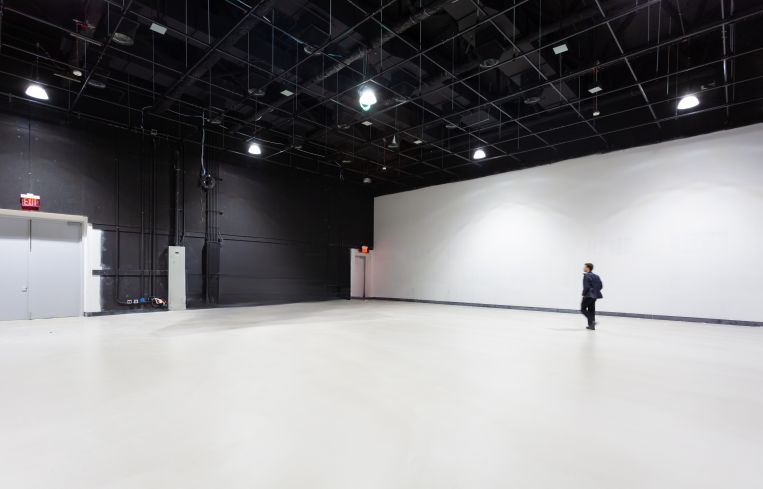
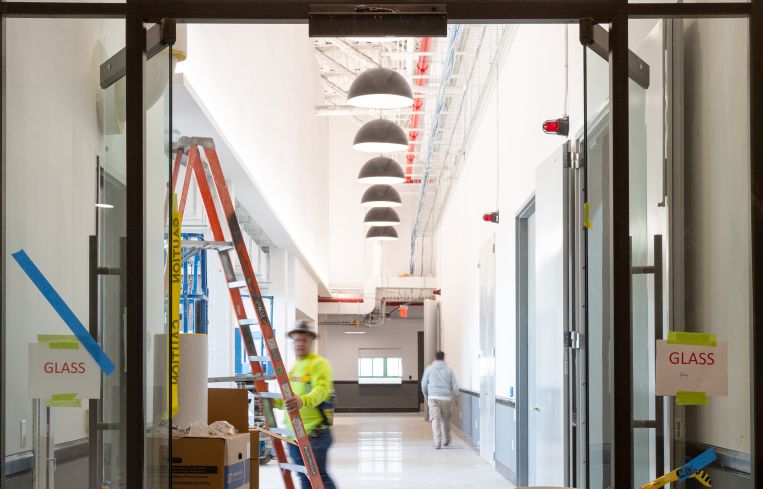
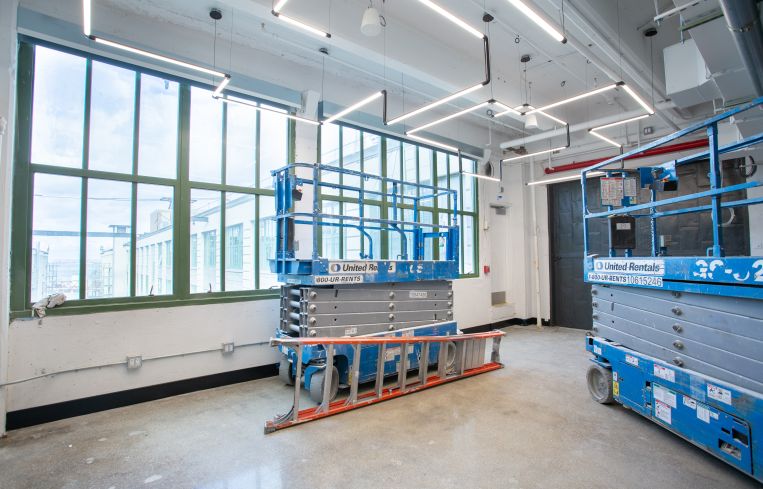
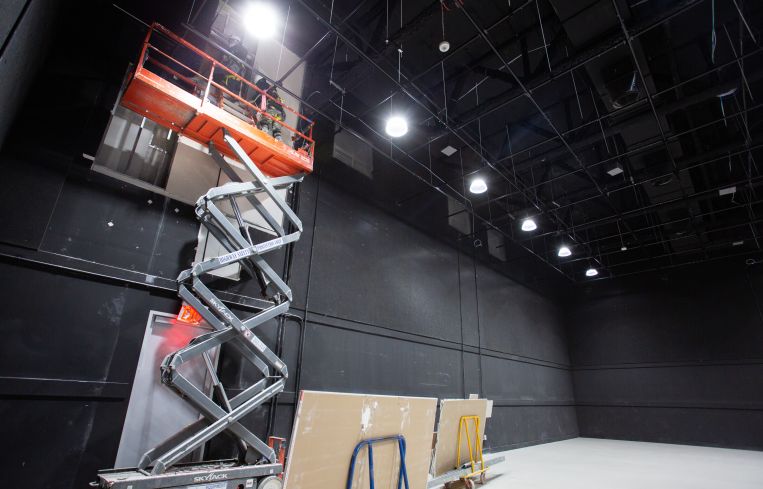
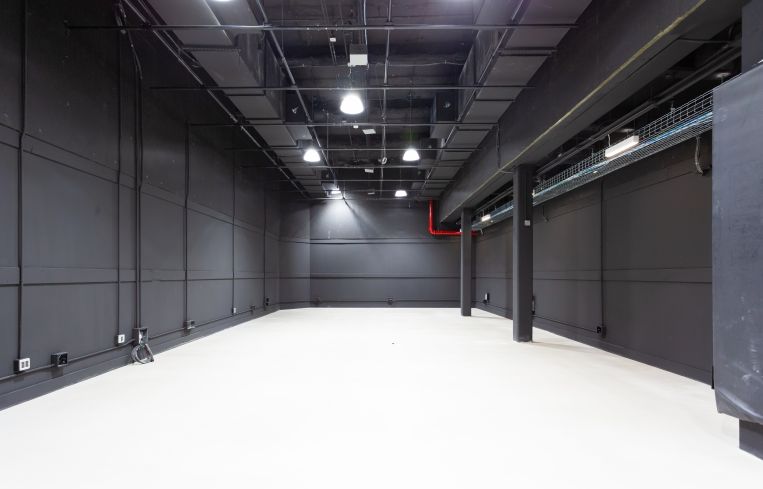
Building a soundstage in an existing New York City building isn’t easy. It requires double-height ceilings, significant soundproofing and a lot of new electrical lines to power cameras and lights.
But in Sunset Park, Brooklyn, New York University’s Tisch School of the Arts decided it wanted to build a sprawling, 46,000-square-foot soundstage facility named after director Martin Scorsese on the top floor of Buildings 7 and 8 at Industry City. The 35-acre industrial and commercial campus along the East River waterfront consists of massive warehouses constructed in the late 19th and early 20th centuries and was used by the military for moving goods and weapons during World War I.
So, to get a 25-foot ceiling, Industry City decided to construct a waterproof box on the roof and then cut a hole in the roof slab. This move also allowed the landlords—Jamestown, Belvedere Capital and Angelo Gordon— to create column-free space, which is essential for film and TV production. Industry City took a similar approach when building a practice facility for the Brooklyn Nets, which needed two double-height practice courts.
Jim Somoza, the managing director for Industry City, described the soundstages as “three-dimensional green screens” with LED panels that can be used for animation, motion capture and other kinds of digital production. The space is a virtual production facility, which means that actors and directors will be able to see more of the effects in real time rather than later in post-production.
The Martin Scorcese Virtual Production Center includes two 3,500-square-foot, double-height soundstages, two 1,800-square-foot television studios, modern broadcast and control rooms, dressing rooms, makeup areas, a lounge and dining area, scene workshops, offices and training space. The facility is also soundproofed with air-gapped walls, and a central corridor surrounds the soundstages, creating more insulation from outside noise.
Industry City is still putting the finishing touches on the soundstages, but it plans to turn over keys to NYU next month, which is when Tisch will start installing electronics, lighting and production equipment. Tisch will use the space to train students beginning this fall, and it will also lease the facility to production companies.
Construction began last spring and took about eight months, according to Somoza. He added that NYU decided to build the production center at Industry City because the university has had Langone Medical Center staff and facilities in the complex for years, and both students and staff like the food options in the development, as well as the nearby subway access at 36th Street.
The complex is also home to a slew of other film-related tenants that sell and rent equipment and do post-production. Among the most attractive to production companies is a tenant called AbelCine, which sells, rents and repairs film equipment and trains people on how to use it, Somoza pointed out. The company is only two buildings away, making it easy for production teams to grab replacement cameras and other equipment if something breaks.



